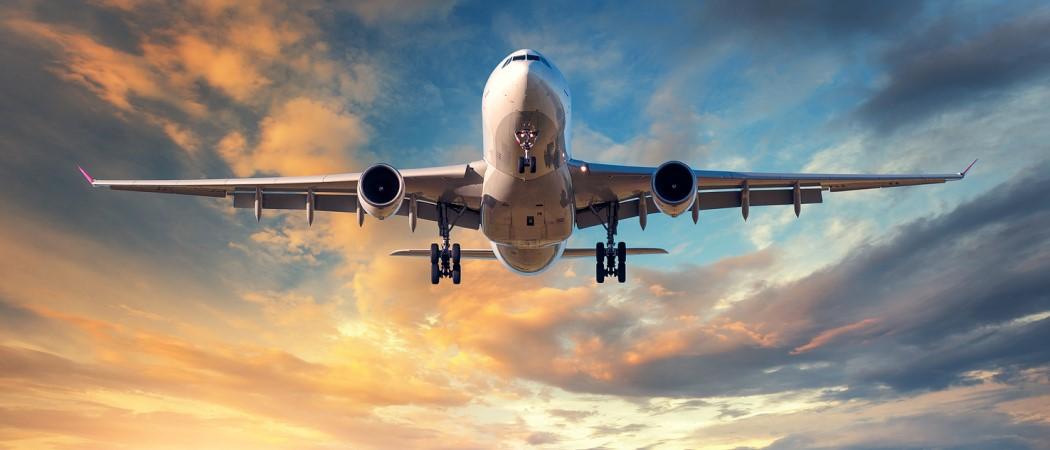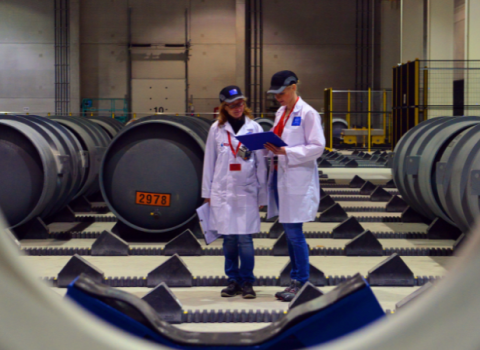Attending international scientific conferences is the lifeblood of research. Now, grant funding bodies are introducing offsets to cut the carbon footprint and encourage use of greener modes of transport

They may be grounded by COVID-19 lockdowns at present, but since November 2020 academics in Germany have been able to get carbon offsets when travelling for research sponsored by the research agency Deutsche Forschungsgemeinschaft (DFG).
The offsets donate money to climate protection projects in the global south, for example planting trees or building a wind turbine.
Climate activists cautiously welcome the policy. “It’s a good move, but it comes a little late,” said Dorothee Saar of Environmental Action Germany, an environmental lobby group. “Many of these practices have been available for decades already.”
In fact, the DFG policy is based on one the German government adopted in 2014. After ministers book a trip by plane, train or car, a computer programme recommended by Germany’s Federal Environment Agency determines what emissions will be generated. The calculations, including the type of fuel used, the distance travelled, and so on, generate a ‘CO2 certificate’ for each equivalent tonne of carbon. The certificate specifies how much money is to be donated to climate-saving projects certified under UN rules or equivalent standards.
Other European governments are following suit. Ireland introduced carbon offsets for all government travel last year, while Finland and Germany offset flights during their EU presidencies. In 2018 travel accounted for 53% of the European Commission’s carbon footprint, and it is evaluating offsetting this, as part of an overall move towards carbon neutrality.
Universities are getting in on the offsetting action too. Most departments at ETH Zurich offset staff flight emissions through the Federal Office for the Environment. Utrecht University, the University of Helsinki, and University College London also offer to offset employees’ travel. The UK medical charity Wellcome Trust started financing offsets for researcher travel in November 2019.
No fly zone
But these offsets don’t go far enough for some. A number of researchers are abandoning flying altogether. “We in academia say that for sustainability we should fly less, but what are we doing? We travel to conferences in the name of sustainability,” said Maren Kropfeld, a PhD student at the University of Oldenburg and a member of NoFlyClimateSci, a group of scientists who pledge to fly less - or not at all -for their research.
Others researchers agree. “It’s nice to give some money to poorer countries [which] are already facing incredible climate impacts, but it would be better to simply avoid the emissions,” said Heike Hübener, a senior researcher at the Hessian Environmental Agency in Germany, who is also part of the campaign.
Carbon offsets for flights are controversial, with climate activists saying they ‘greenwash’ unnecessary travel. CO2 is still being pumped into the air. Some activists go as far as comparing them to ‘plenary indulgences’ sold by the Catholic church in medieval times, by which sinners could avoid being punished for their transgressions.
“It must be the [exception] to take the plane, and not be the norm,” said Saar. Ideally, offsetting policies should require a justification for flying, rather than using greener options like the train. “As long as you don’t have this additional requirement it risks being just greenwashing,” Saar said.
In Germany, there’s little proof of offsets changing habits. According to the German newspaper Der Spiegel, there were almost 20,000 flights between ministries in Berlin and Bonn in 2019, despite the fact there are direct train routes. To put that in context, just one round trip between the airports emits roughly 140 kilos of CO2 per person.
Ironically, a recent study found that climate scientists are the most frequent flyers among researchers, taking one more flight on average than counterparts in other disciplines.
Another issue is that the climate saving projects can backfire. One tree planting project in Brazil ended in failure when loggers cut down the trees, once support from US and European companies finished.
Let the train take the strain
As Kropfeld points out, there are also cultural issues to overcome, with young researchers facing the imperative to attend as many conferences as possible in order to advance their careers. “If you're already a professor, you can sort of relax a little. But if you're a PhD student and want to pursue a career in academia, that's a choice [you] have to make,” she said.
Institutions should make the train an easier option, by allowing time for researchers to travel when possible, rather than favouring the fastest option. Utrecht University is doing this; it uses a ‘train zone’ that lets staff quickly plan train travel within Europe, and see the emissions that will be saved.
It was Die Junge Akademie, a group of young German researchers, which first suggested in 2019 that DFG should fund offsets. Since then the group has issued other recommendations for research institutions and funding bodies to change the travel culture of academics.
Along with creating emissions targets and investing in technology to attend conferences online, these include limiting the number of international presentations scientists are required to list in research proposals or their CVs.
Lockdowns enforced to prevent the spread of COVID-19 have shown attending conferences online can both limit emissions and broaden access. For example, the European Geosciences Union held its 2020 event online, allowing an extra 10,000 attendees from across the world to take part.
That is not to say the online option is carbon neutral. Data centres that run video calling software and cloud storage are likely to be powered by fossil fuel electricity generating plants. But the emissions are a fraction of the CO2 emitted by flying. A carbon breakdown of one San Francisco conference held online last year estimated if participants had flown there instead, 66 times more CO2 would have been generated. Another study found that videoconferencing takes at most 7% of the energy/carbon of travelling for a face to face meeting.
Post-lockdown, researchers across Europe should switch plane for rail travel for journeys across the continent says Hübener. Before lockdown, she made a two-day journey from Berlin to Bucharest by train. “It shouldn't be a bad thing,” she says. “It gives us time for looking outside the window, perhaps to read some journal papers. We really need to refrain from this idea that it should be possible to be everywhere within half a day.”





 A unique international forum for public research organisations and companies to connect their external engagement with strategic interests around their R&D system.
A unique international forum for public research organisations and companies to connect their external engagement with strategic interests around their R&D system.